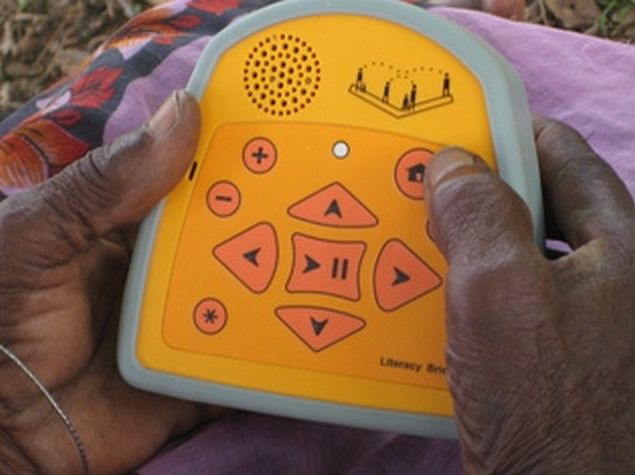To help eradicate serious illnesses like ebola and cholera by spreading health education amongst the poorest of poor, the charity Literacy Bridge in association with Unicef and mobile chip-maker ARM is going to distribute Talking Book mobile devices to deliver health education to 40,000 vulnerable people living in Ghana. These are custom made audio players that can be used to share spoken information in people’s local languages.
The Talking Books were developed by Literacy Bridge in 2007, to give people without literacy access to interviews, songs, and dramas that address lifesaving health and agricultural advice. The $750,000 (approximately Rs. 4,63,95,000) project, which is being mostly funded by Unicef and ARM, and will focus on the use of low-cost mobile technology. It will mostly be used to cover the cost of 2,000 devices, and the staff to support them, with a target of reaching 40,000 people.
The project wants to use the talking books to deliver education about ebola and cholera prevention, the treatment of diarrhoea in children, identifying and treating diseased crops and more. This project will run for two-and-a-half years, with each device’s content updated once in every five weeks, according to a report by the BBC.
The devices, big plastic boxes which look like old cassette players, store data on microSD cards, and can each hold hundreds of hours of audio – they’re intentionally simplistic since they have to be usable by people who cannot read, but the devices are sophisticated enough that you can share data by connecting them using a USB cable, and they come with a microphone, capable of recording voice feedback.
The devices are being custom built with assistance from ARM, with a goal of improving battery efficiency.
Source and Original Content by Ndtv



